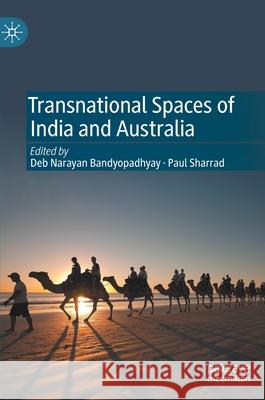Transnational Spaces of India and Australia » książka
topmenu
Transnational Spaces of India and Australia
ISBN-13: 9783030813246 / Angielski / Twarda / 2022 / 250 str.
Kategorie:
Kategorie BISAC:
Wydawca:
Palgrave MacMillan
Język:
Angielski
ISBN-13:
9783030813246
Rok wydania:
2022
Wydanie:
2021
Ilość stron:
250
Waga:
0.45 kg
Wymiary:
21.01 x 14.81 x 1.6
Oprawa:
Twarda
Wolumenów:
01
Dodatkowe informacje:
Wydanie ilustrowane











